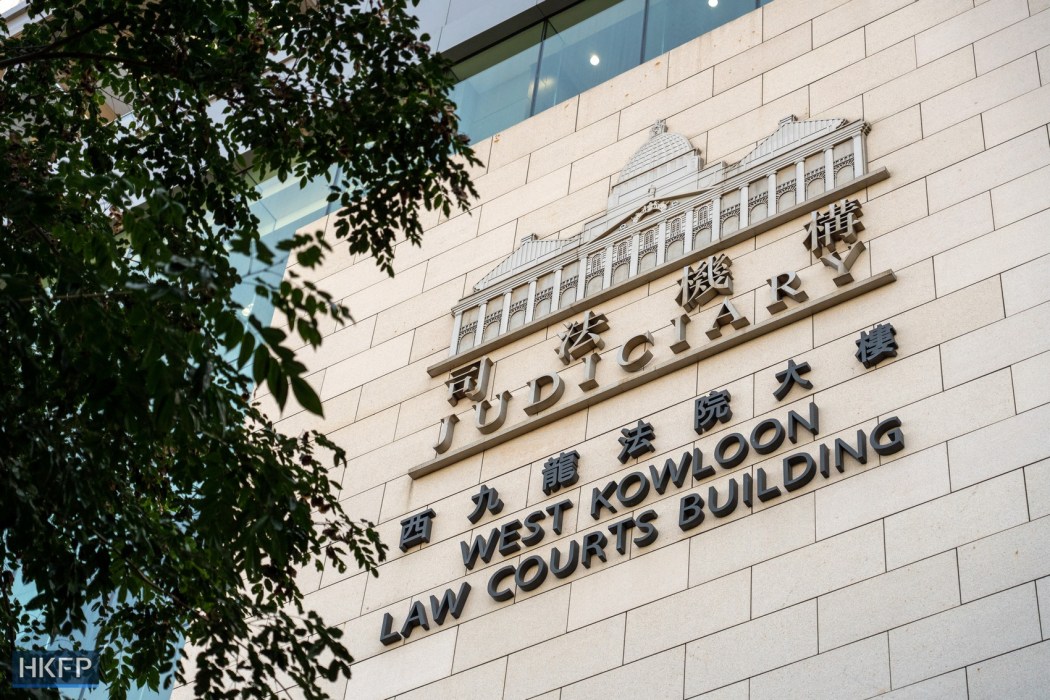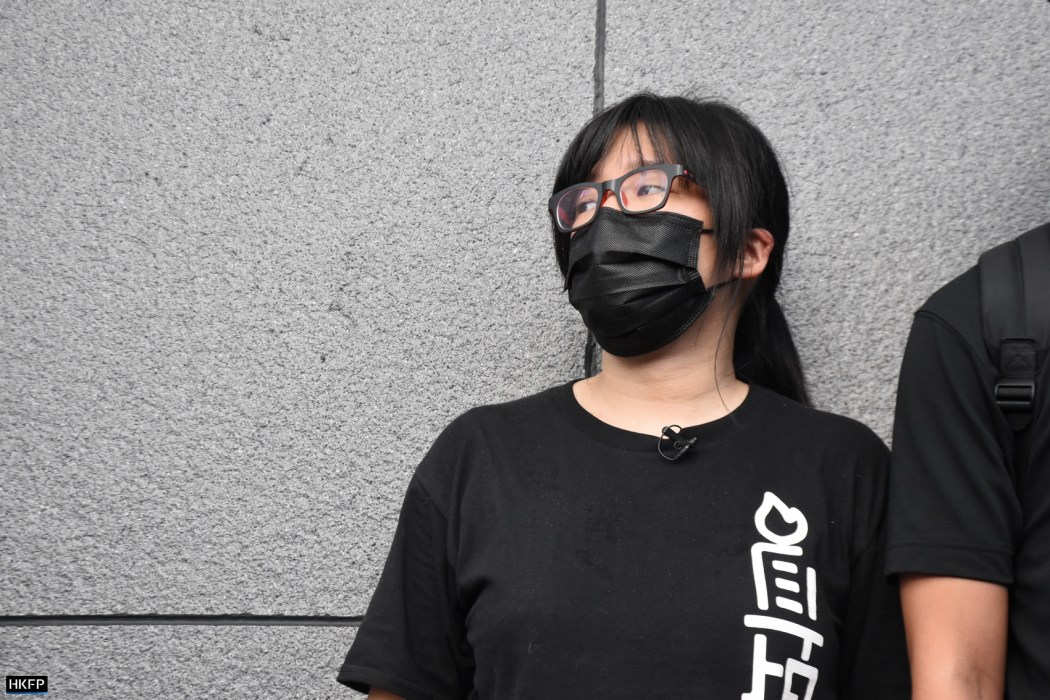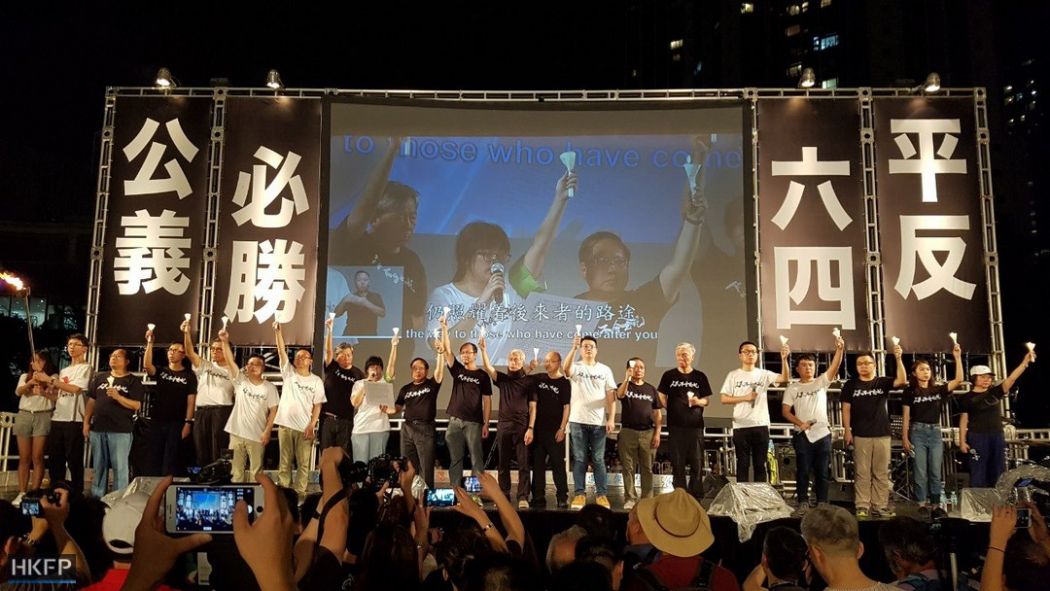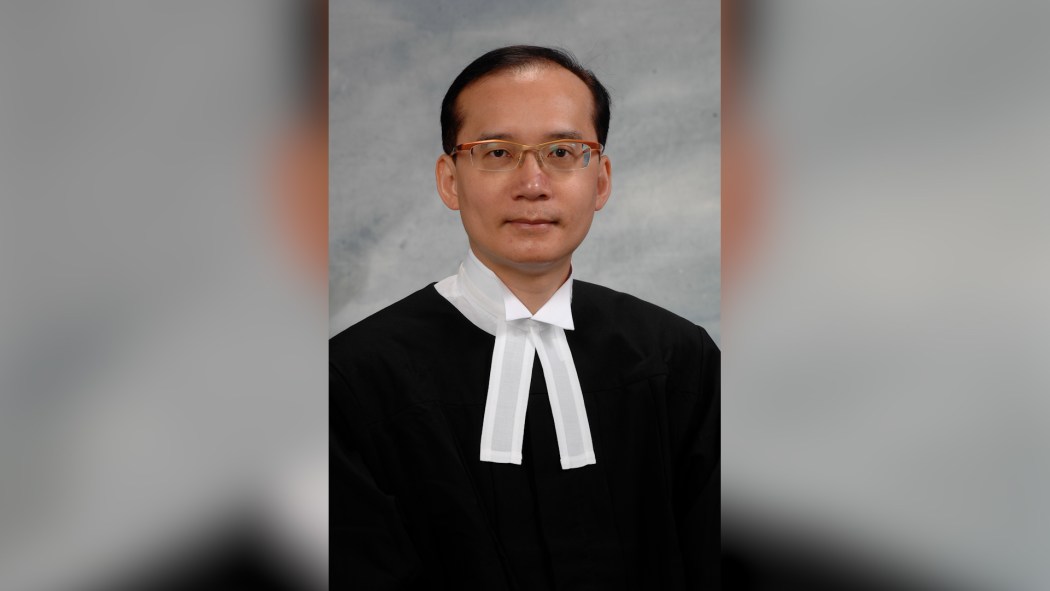Hong Kong national security police have no right to demand information from leaders of a now-defunct activist group because there is no evidence it was an agent of foreign forces, a defence lawyer told a court.
Three former members of the standing committee of the Hong Kong Alliance in Support of Patriotic Democratic Movements of China, Chow Hang-tung, Tang Ngok-kwan, and Tsui Hon-kwong, appeared before designated national security judge, Principal Magistrate Peter Law, on Thursday at the West Kowloon Magistrates’ Courts.

The alliance, before its disbandment in September last year, for decades organised the city’s annual candlelight vigils to commemorate victims of the 1989 Tiananmen crackdown in Beijing.
The three are accused of failing to comply with a notice from national security police requesting information, including personal information about standing committee members and staffers.
Under the implementation rules of the Beijing-imposed national security law, the police chief, upon approval from the secretary for security, can issue notices to foreign or Taiwanese political groups and their agents to request information such as financial records. Prosecutors say the Alliance was an agent of foreign groups.
Two other defendants in the case, Simon Leung and Chan To-wai, pleaded guilty earlier and were sentenced to three months in prison.
The Alliance as foreign agent
Senior Counsel Philip Dykes, representing Tsui, argued that for an individual or organisation to be defined as a foreign agent, they must not only receive funding from an external source, but must also conduct activities for the benefit of the funding provider – that “there must be a quid pro quo,” which was not proven in this case.

The Alliance is accused of acting as an agent for a foreign group identified in court only as “Organisation 4” and is said to have received HK$20,000 from it.
Dykes, in his closing submission, said it “could not be established that the Commissioner of Police believed or reasonably believed that the Alliance is a foreign agent, because that connection was not made out.”
The identity of “Organisation 4” was concealed in court after the prosecution cited Public Interest Immunity (PII) grounds – that disclosure of such information would harm the public interest.
Production of documents
The senior counsel also questioned whether the police chief had the right to order the Alliance to hand over documents, along with the requested information, by serving a notice.
In other ordinances where authorities were allowed to request documents from citizens, the nature of the documents was either specified by law, or by the person making the request, said Dykes.
The implementation rules did not state that documents could be requested using a notice, nor did the police chief specify what types of documents he wanted, the senior counsel argued.

“You can see the mischief if it is left to the individual to say this [document] is relevant, and the Commissioner of Police saying it’s not…they run the risk of prosecution,” said Dykes.
The implementation rules allowed authorities to issue production orders to request certain documents, but police could not seek such material by serving the notice they had used, Dykes argued.
Police also requested information dating back to 1989, which raised questions over whether the national security law imposed in 2020 could be applied retroactively.
“Nothing in the national security law explains that it operates retroactively or it authorises the implementation rules to operate retroactively,” said Dykes.

The senior counsel also questioned whether the implementation rules of the security legislation could override other laws, specifically the Personal Data (Privacy) Ordinance.
Barrister Albert Wong, who was also representing Tsui, said the police chief must consider the issue of human rights and “ensure that the notice was issued only when necessary.”
Fair trial
Chow, who represented herself in court, had opposed the prosecution’s PII claim throughout the trial and case hearings beforehand.
While the magistrate had ordered the prosecution to disclose certain information, such as a police investigation report, those materials were heavily redacted.

A prosecution witness, Hung Ngan, the now-acting senior superintendent of the national security police, was allowed not to answer questions which might risk disclosing materials protected by PII.
The Alliance itself, Chow, and two of the group’s ex-leaders Lee Cheuk-yan and Albert Ho, have also been charged in a separate case under the national security law with inciting subversion.
The Tiananmen crackdown on June 4, 1989 ended months of student-led demonstrations in China. It is estimated that hundreds, perhaps thousands, died when the People’s Liberation Army cracked down on protesters in Beijing.
Hong Kong was the only place on Chinese soil to observe a major commemoration until authorities in 2020 banned the event, citing the Covid pandemic.
Support HKFP | Policies & Ethics | Error/typo? | Contact Us | Newsletter | Transparency & Annual Report | Apps
Help safeguard press freedom & keep HKFP free for all readers by supporting our team
























